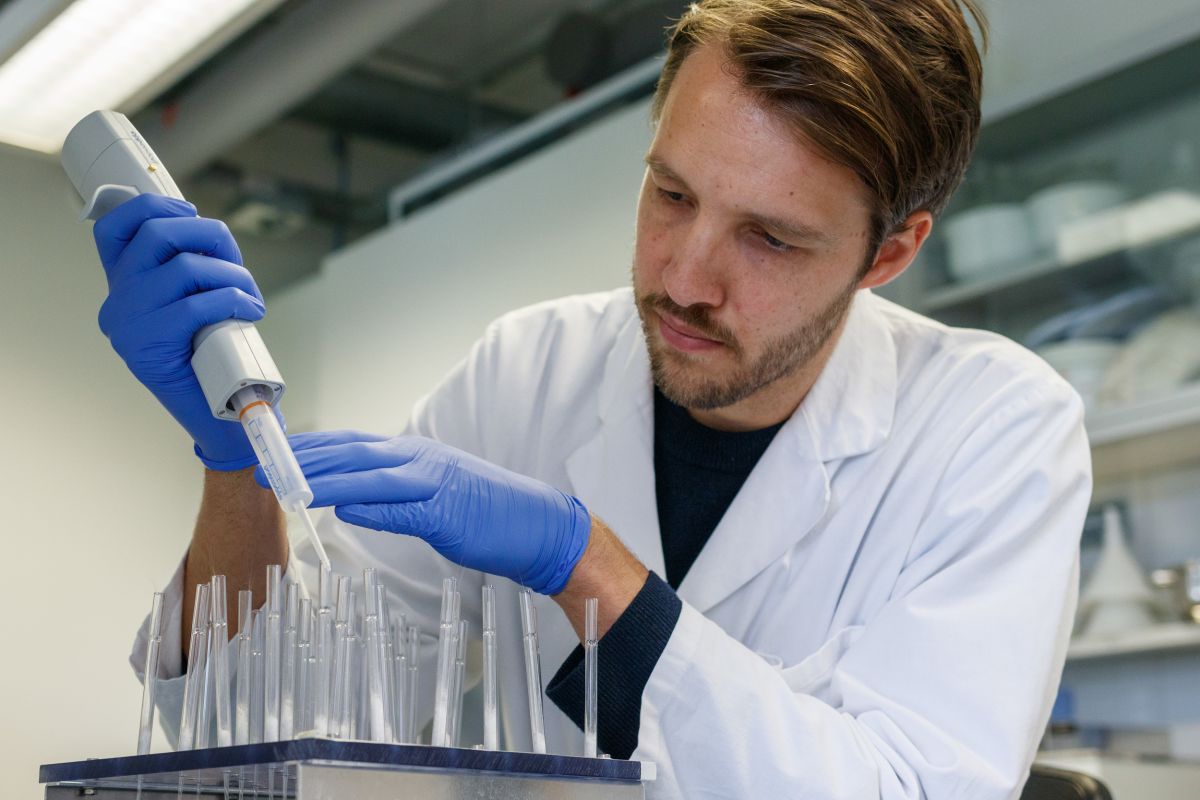
M. Sc. Axel Touw
Scientist
It has become increasingly clear in the last decades that microbes help plants adapt to changing environmental conditions, resulting in improved performance and fitness. The plant and its associated microbiome are often considered a holobiont, where the microbiome provides a reservoir of additional (ecological) functions including nutrient acquisition and disease suppression, but also modulation of the secondary metabolome. Especially roots host a rich microbiome, because of soil environmental conditions and the large amounts of carbon-rich photosynthates that plants exude into the rhizosphere. In addition, roots release root exudates that affect the composition of the root microbiome. The feedback cycle between secondary metabolome and the root microbiome may result in different plant chemotypes depending on plant chemodiversity and the composition of soil microbiota. However, how this feedback cycle affects interactions between plants and other organisms in the environment is largely unknown.
In my project, I study the reciprocal relationship between the plant secondary metabolome and the rhizosphere microbiome, how this relationship influences the composition of the holobiont, and how this affects interactions between plants and organisms in the environment, including insect herbivores and nematodes. In addition, I study the formation of above- and below-ground communities associated with different holobionts. To do so, I combine greenhouse and field experiments with analytical platforms including GC- and LC-MS analyses to study the secondary metabolome with metagenomics and -transcriptomics to study the composition and function of the microbiome. Lastly, I perform bioassays to study how the presence of microbes alters interactions between plants and soil organisms, including insect herbivores, including the cabbage root fly.